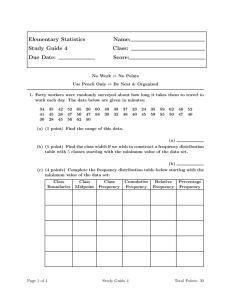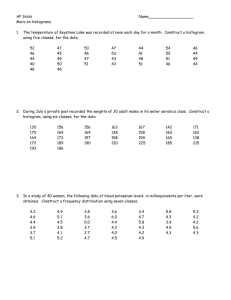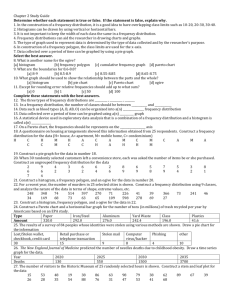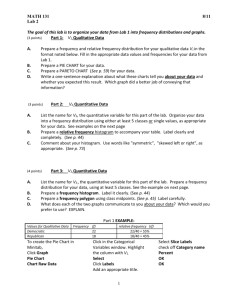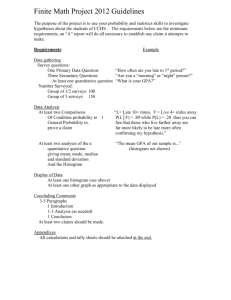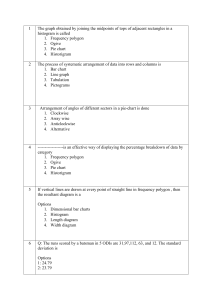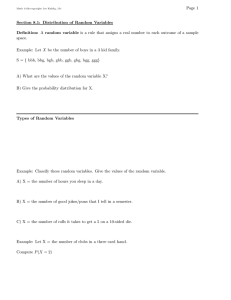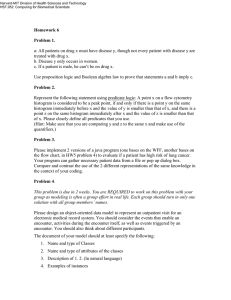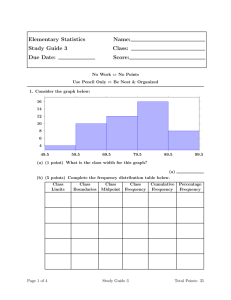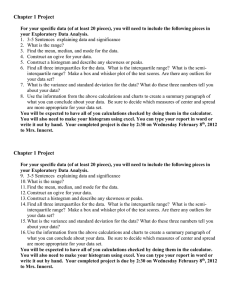A sample value that lies very far away from the majority of the other
advertisement
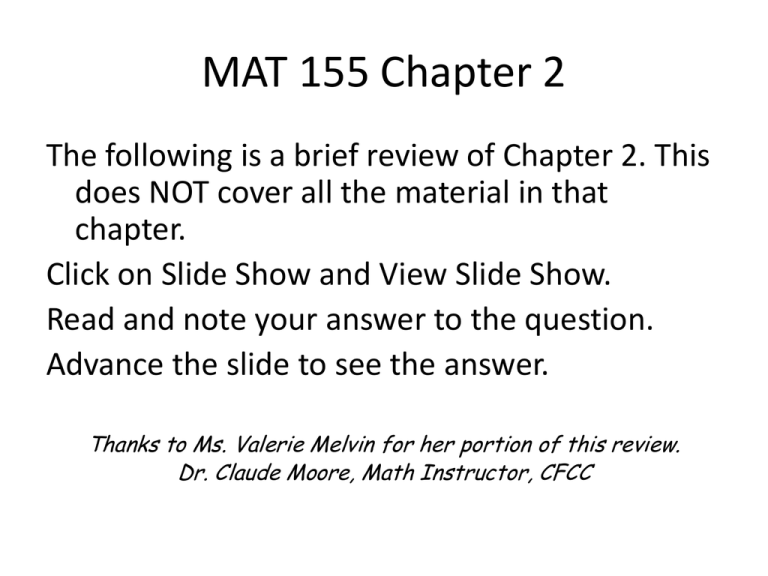
MAT 155 Chapter 2 The following is a brief review of Chapter 2. This does NOT cover all the material in that chapter. Click on Slide Show and View Slide Show. Read and note your answer to the question. Advance the slide to see the answer. Thanks to Ms. Valerie Melvin for her portion of this review. Dr. Claude Moore, Math Instructor, CFCC A sample value that lies very far away from the majority of the other sample values is 1. 2. 3. 4. the center a distribution an outlier a variance A table that lists data values along with their counts is 1. 2. 3. 4. an Ogive a frequency distribution A cumulative table a histogram The smallest number that can actually belong to different classes are 1. 2. 3. 4. upper class limits class boundaries midpoints Lower class limits A bar graph where the horizontal scale represents the classes of quantitative data values and the vertical scale represents the frequencies is called 1. 2. 3. 4. a frequency distribution a histogram a dot plot a pie chart The pie chart below shows the percent of the total population of 12,200 of Springfield living in the given types of housing. Find the number of people who live in single family housing (round to the nearest whole number). Single family 39% Apartments 35% 1. 2. 3. 4. 4758 people 39 people 5368 people 7442 people Duplex 2% Condo 18% Townhouse 6% Drawings of objects used to depict data are called 1. 2. 3. 4. scatterplots pictographs dot plots pie chart The frequency table below summarizes the home sale prices in the city of Summerhill for the month of June. Determine the class midpoint for the sixth class. 1. 2. 3. 4. 250.55 250.45 250.50 250.40 The histogram below represents the number of television sets per household for a sample of U.S. households. How many households are included in the histogram? 1. 2. 3. 4. 110 90 100 95
